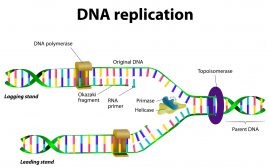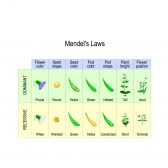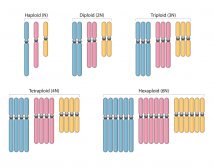Definition
noun
A non-Mendelian inheritance in which an infectious particle within the cell of the host may bring changes in the phenotype of the host organism, and then pass on the altered phenotype to its offspring
Supplement
Non-Mendelian inheritance is a type of biological inheritance wherein the patterns of phenotypes do not accord with those as expected in Mendelian laws on inheritance. It includes extranuclear inheritance, gene conversion, infectious heredity, genomic imprinting, mosaicism, and trinucleotide repeat disorders.
Infectious heredity is a form of non-Mendelian inheritance in which an infectious particle within the cell of the host may bring changes in the phenotype of the host organism, and then pass on the altered phenotype to its offspring. Infective particles may be in the form of viruses within the cells of the host. Since the viral infection lives in the cytoplasm the transmission of the phenotype to the offspring may be uniparental, i.e. maternal in origin. This form of inheritance may be usually associated with viruses some research findings demonstrated certain bacteria, particularly Wolbachia, are also capable of this process.1
See also:
- extranuclear inheritance
- gene conversion
- genomic imprinting
- mosaicism
- trinucleotide repeat disorder
- maternal inheritance
- mitochondrial disease
- non-Mendelian inheritance
- allele
- genotype
Reference(s):
1 Dunning Hotopp, J. C., Clark, M. E., Oliveira, D. C., et al. (2007). “Widespread lateral gene transfer from intracellular bacteria to multicellular eukaryotes”. Science. 317 (5845): 1753–6.







